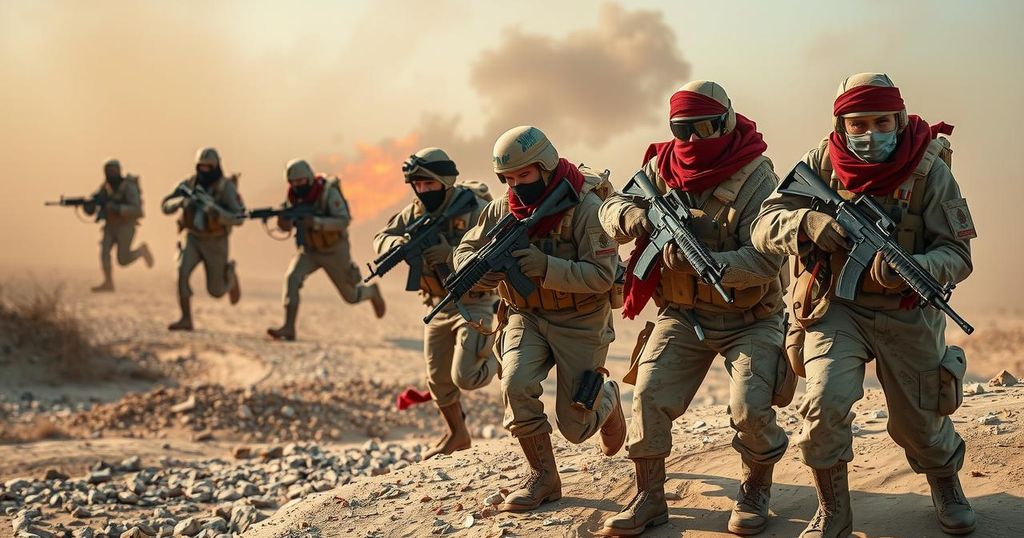Rebel forces have made significant advances in Syria, capturing key cities including Damascus. The main group, Hayat Tahrir al-Sham, aims to overthrow President Bashar al-Assad, a dictator with a controversial regime. The conflict involves multiple international actors with diverging objectives, contributing to a complex political landscape.
In recent developments, rebel forces in Syria have made significant advances, reportedly claiming victory in several key locations, including the capital, Damascus. This rapid escalation of the conflict has drawn international attention, prompting a need for clarity on both the identity of the rebel factions and their objectives in the ongoing struggle against President Bashar al-Assad’s regime.
Syria is strategically located along the Mediterranean coast in the Middle East, bordered by nations such as Iraq, Lebanon, and Türkiye. Over the past week, rebels erupted into major cities, seizing control of Hama and Homs, culminating in their entrance into Damascus. The primary group leading these insurgent efforts is Hayat Tahrir al-Sham (HTS), which has historical ties to Al-Qaeda, although it asserts a break from that affiliation in recent years. Additionally, the Syrian National Army, a coalition of various Syrian militias supported by Türkiye, is also involved in the uprising.
The rebels’ principal objective, articulated by HTS leader Abu Mohammed al-Golani, is the overthrow of President Bashar al-Assad. Nonetheless, there remain uncertainties regarding the political dynamics that may follow should they accomplish this goal. President Assad, who has ruled since 2000 following the death of his father, remains a polarizing figure, often characterized as a dictator by various global observers. Australia has imposed sanctions on Syria since 2011 due to grave concerns over the regime’s violent conduct towards its populace.
As of now, the whereabouts of President Assad are unclear, with reports indicating that he may have evacuated Damascus on an undisclosed flight. This ongoing conflict is not confined to Syrian interests alone; it involves numerous international powers with conflicting agendas, significantly complicating the situation. John Lyons, ABC’s global affairs editor, highlights that major nations have vested interests in the outcome, with some, such as Israel and the United States, seeking the dismantling of Assad’s regime, whereas others, like Iran and Russia, are aimed at ensuring its survival.
This multifaceted conflict in Syria represents not only a pivotal moment for the nation’s future but also a critical juncture for regional stability, as powerful nations vie for influence and control amidst a backdrop of civil unrest.
The Syrian civil war has been ongoing since 2011, originating from widespread protests against the Assad regime’s repressive governance. The conflict has evolved from peaceful demonstrations demanding political reform to a brutal struggle involving various rebel factions and international actors. The situation in Syria is further complicated by its geopolitical significance, as multiple nations have vested interests in the outcome of the conflict, ranging from humanitarian concerns to strategic military alliances. Understanding the various factions involved, particularly the role of groups like HTS and the Syrian National Army, is crucial in assessing the current dynamics of the war and its implications for regional and global politics.
In conclusion, the current landscape of the Syrian conflict is marked by significant territorial gains made by rebel forces, primarily led by HTS and supported by other militias. The overarching goal of these factions to depose President Bashar al-Assad poses questions about the future governance of Syria and the geopolitical ramifications of such a shift. As major world powers continue to engage in this conflict, the outcome remains uncertain, with profound implications for both Syria and the broader Middle East.
Original Source: www.abc.net.au






